DAOs are a unique innovation on the conventional, centralized business model, but in their nascence, this innovation creates numerous issues in the attempt to solve other issues. Apeiro seeks to not only produce value in an ecosystem, but to fundamentally improve the way DAOs and DAO voting works. To do so, we must understand the flaws we are aiming to remedy;
Understanding Voting
Traditional Voting
Traditional voting allocates a single vote to each member of a population (or in this case, DAO), it shines in that it is a simple and easily understandable system for all, while other governance structures struggle with a knowledge barrier for voters.
Under traditional voting, your voting contribution requires very little effort, as such, one supports a proposal if they care strongly enough about the outcome. Issues arise afterwards, where there is no room for further contribution, a voter who cares very little carries the same governance power as one who cares very strongly.
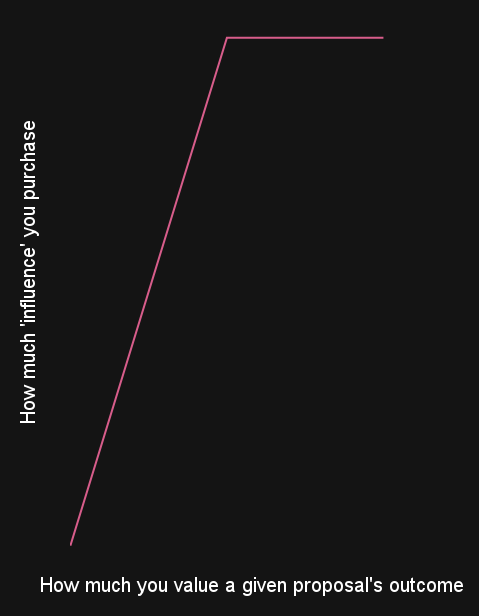
Pros:
- Easily understandable (low barrier of entry)
Cons:
Over-privileges a lack of conviction
Lack of anonymity (crucial in DeFi)
Incredible weakness versus sybil attacks
Token Voting
Token voting is the current standard for DAOs, it entails a system in which each holder of the DAO's governance token is granted votes equal to their token balance, thus balance (monetary standing) and governing power are linked.
Token voting fails in that single actors or a small group of individuals are able to largely influence the DAO's decisions if they value the outcome of a proposal enough and are adequately wealthy — this creates a plutocratic governance structure in which any decision can be forced through by one person or a small number of people.
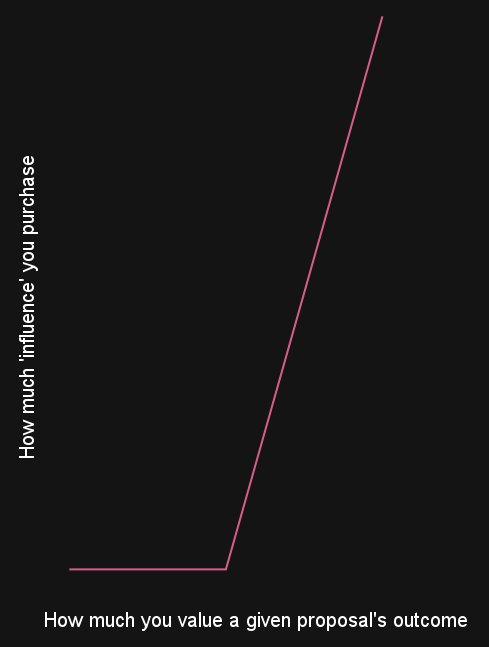
Unlike traditional voting, where individual actors with little conviction are over-privileged, token voting over-privileges individual actors who either care deeply about the proposal or are wealthy enough to force the proposal's outcome, inevitably creating a plutocracy.
Pros:
Equitable for small-group decisions
Easily understandable (low barrier of entry)
Cons:
Inevitably plutocratic
Over-privileges individual actors with particularity strong conviction
Quadratic Voting
Quadratic voting is a novel voting structure that aims to solve the above issues, but in doing so, creates new issues. Quadratic voting gives each voter (wallet) a set of ‘credits’, from which votes can be cast, the cost of casting a vote is augmented in accordance to the number of votes (n), where vote cost = n² (1 = 1, 2 = 4, 3 = 9…. 10 = 100, etc.) . Voters can purchase additional votes to express greater conviction. This system aims to create a more equitable voting structure, where voters can contribute proportionately to their conviction (caring a little versus a lot).
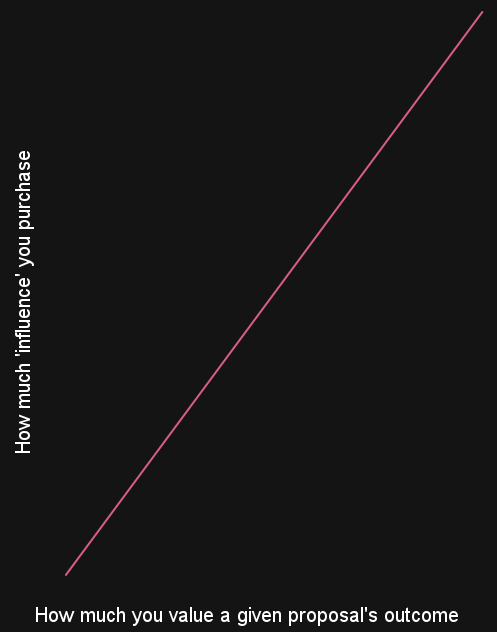
Although seemingly ideal, quadratic voting introduces an array of new and challenging issues, most notably; a vast weakness to sybil attacks and inevitably, it becomes a plutocracy. Sybil attacks are inevitable under quadratic voting, as attackers can create new wallets and exploit the base pool of credits. Projects such as Governor DAO have tried to combat this with their Proof-of-Existence mechanism, having voters KYC to software rather than a central service. While this is a step forward, it is obviously unideal and not the solution.
On top of this, quadratic voting will inevitably fall to plutocracy, as governing influence can be repeatedly purchased, although lesser, governing power is still tied to a voter’s monetary standing. Wealthy actors will continually garner the most governing influence with no mechanism for it to become economically inviable to continue amassing votes.
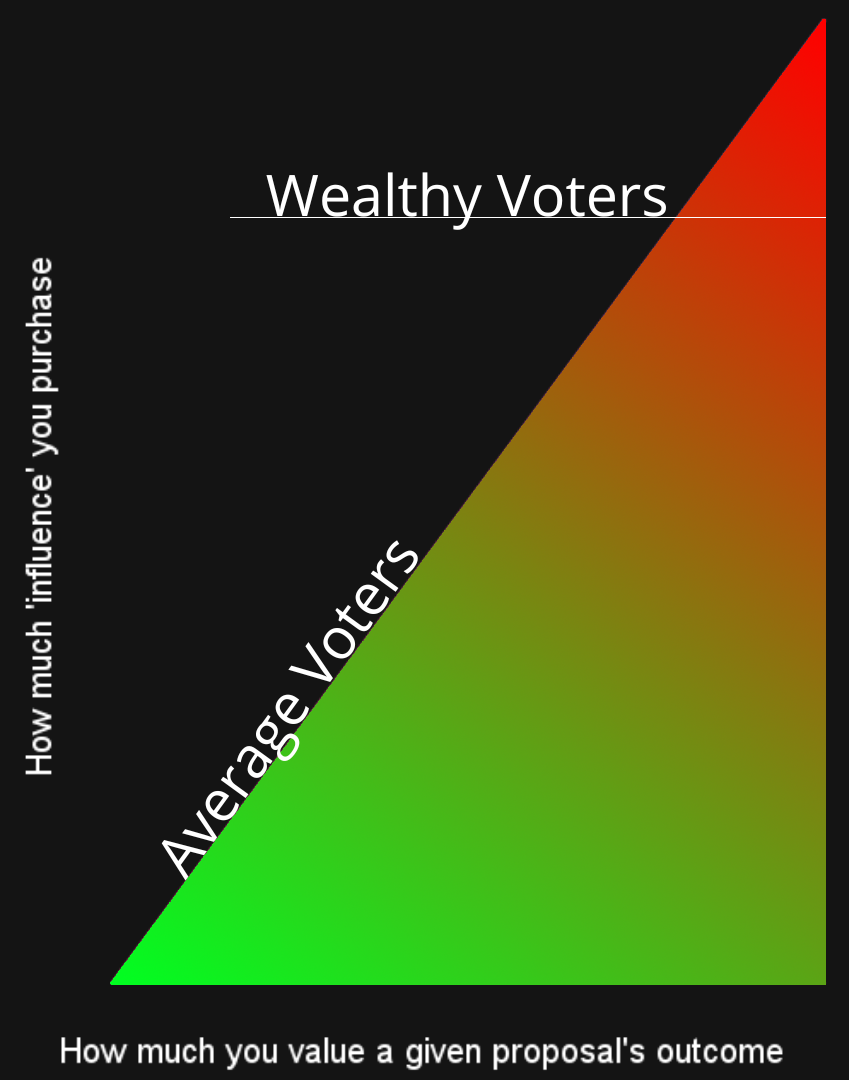
Pros:
- Equitable at a small scale
Cons:
Vast sybil vulnerability
Plutocratic at a large scale
Complex (educational issue)
Introducing; Exponential Democracy
Exponential democracy is Apeiro’s novel voting structure that seeks to solve the common flaws that plague existing voting structures and implement novel mechanisms to build preferential depth, a governmental aspect that is blatantly lacking in current DAO voting structures.
As opposed to token voting, exponential democracy separates tokens and votes, introducing an exponential cost where the cost of casting a vote on any given proposal exponentially increases. Thus, the first vote toward any proposal is free, and each subsequent vote costs exponentially more (to learn about how we calculate exponential cost, see here).
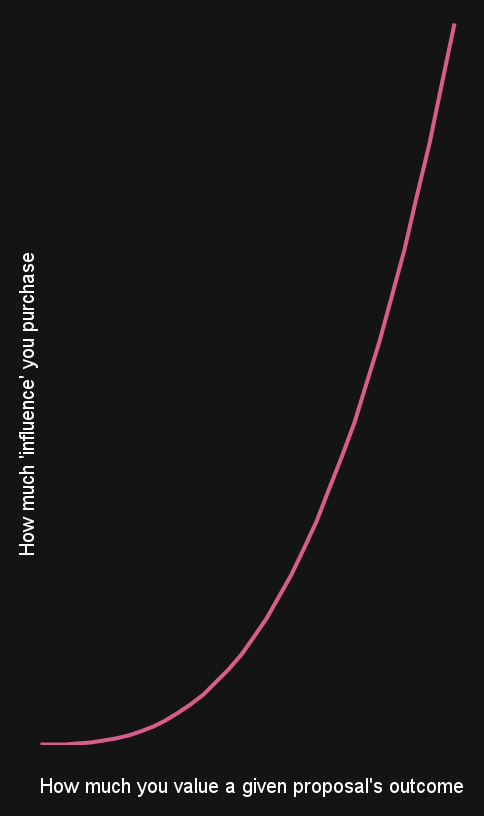
Rather than using a base pool of credits like quadratic voting, exponential democracy takes a wallet’s geAERO (Apeiro’s governance token) balance and uses it as a pool to determine how many votes you a voter is eligible to cast on any given proposal. Under this system, wealthy actors still retain more power than average voters, but it is exponentially lesser, and after a certain point, amassing more governance power becomes too expensive to be economically viable.
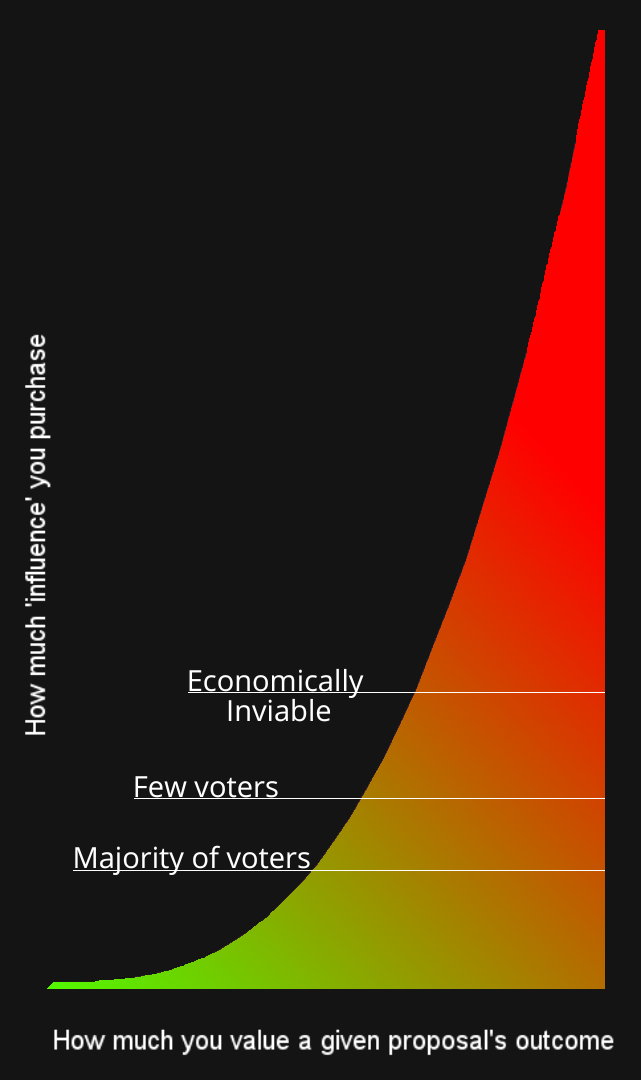
We recognize that not all voters are adequately knowledgeable or have the expertise necessary to make a proper educated decision on each proposals. As such, the exponential democracy also involves a liquid voting mechanism, allowing voters to delegate their votes to a proxy who can vote on their behalf. The Apeiro Council partly exists to prevent this, by handling logistical and technical decisions of the DAO, but it is nonetheless inevitable that technical proposals will appear in front of the DAO, in which case liquid voting’s purpose is clear.
Building Preferential Depth
A core benefit of the exponential democracy is ability for preferential depth within DeFi voting structures, something that is blatantly lacking. Preferential depth entails being able to flexibly express how much you care about a proposal via governance. The capability for preferential depth creates a more equitable governance structure, as it evens out the disparity in governance power seen between wealthy actors who with little conviction, and average actors with strong conviction (regarding a specific proposal).
Under a standard token voting structure, this disparity would become a plutocracy (regardless of the wealthy actor's lack of conviction), as voter's leverage their entire voting power (100% of tokens) for every proposal, regardless of their strength of preference. Thus, preference becomes binary, for or against, 100% in either direction.
Under exponential democracy, voters choose how many votes they wish to cast on a proposal, and send the associated number of geAERO tokens to a smart-contract, forcing voters to spread their votes out over various simultaneous proposals.
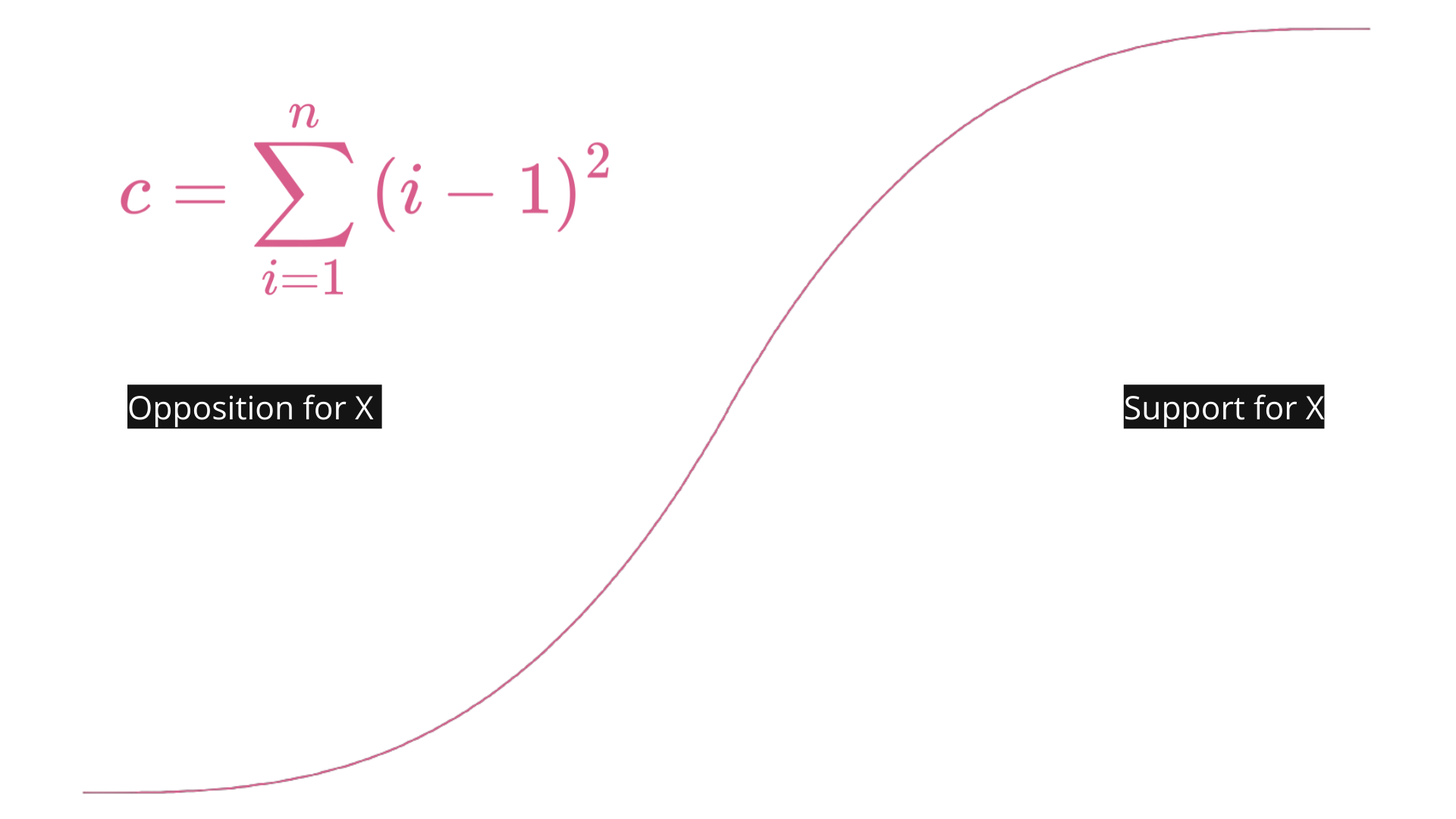
Pros:
Preferential depth
Vastly less plutocratic
Sybil resistant
Liquid voting capability
Equitable at any scale
Cons:
- Complex (educational issue)
Example Scenario
Proposal for treasury to hold USDT over USDC
Voter A: 150 geAERO, large preference for USDT
Voter B: 80 geAERO, slight preference for USDC
Voter C: 60 geAERO, large preference for USDC
Voter A :: 150 geAERO = up to 8.16 votes
Voter B :: 80 geAERO = up to 6.51 votes
Voter C :: 60 geAERO = up to 6.14 votes
Voter A has a large preference, he casts 8.16 votes in favor of USDT (100% of avail. votes)
Voter B has a slight preference, he only casts 3 votes in favor of USDC (46.1 of avail. votes)
Voter C has a large preference, he casts 6.14 votes in favor of USDC (100% of avail. votes)
8.16 (USDT) :: 9.14 (USDC)
Although voter A is more significantly more wealthy than voters B and C (combined), voters B and C still carried greater governing influence as the cost of voting became too great for voter A to overpower them, proving the exponential democracy's necessity.